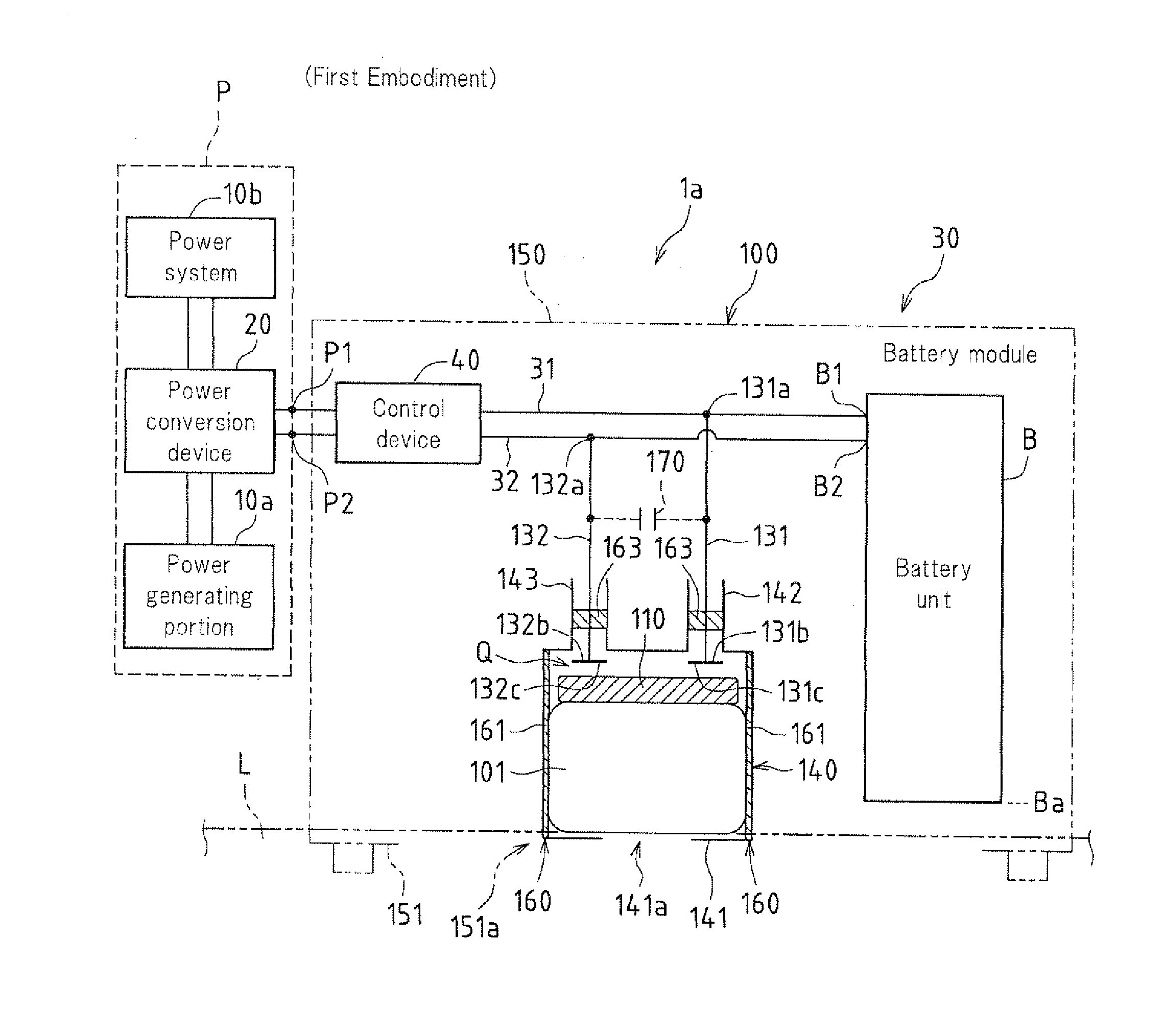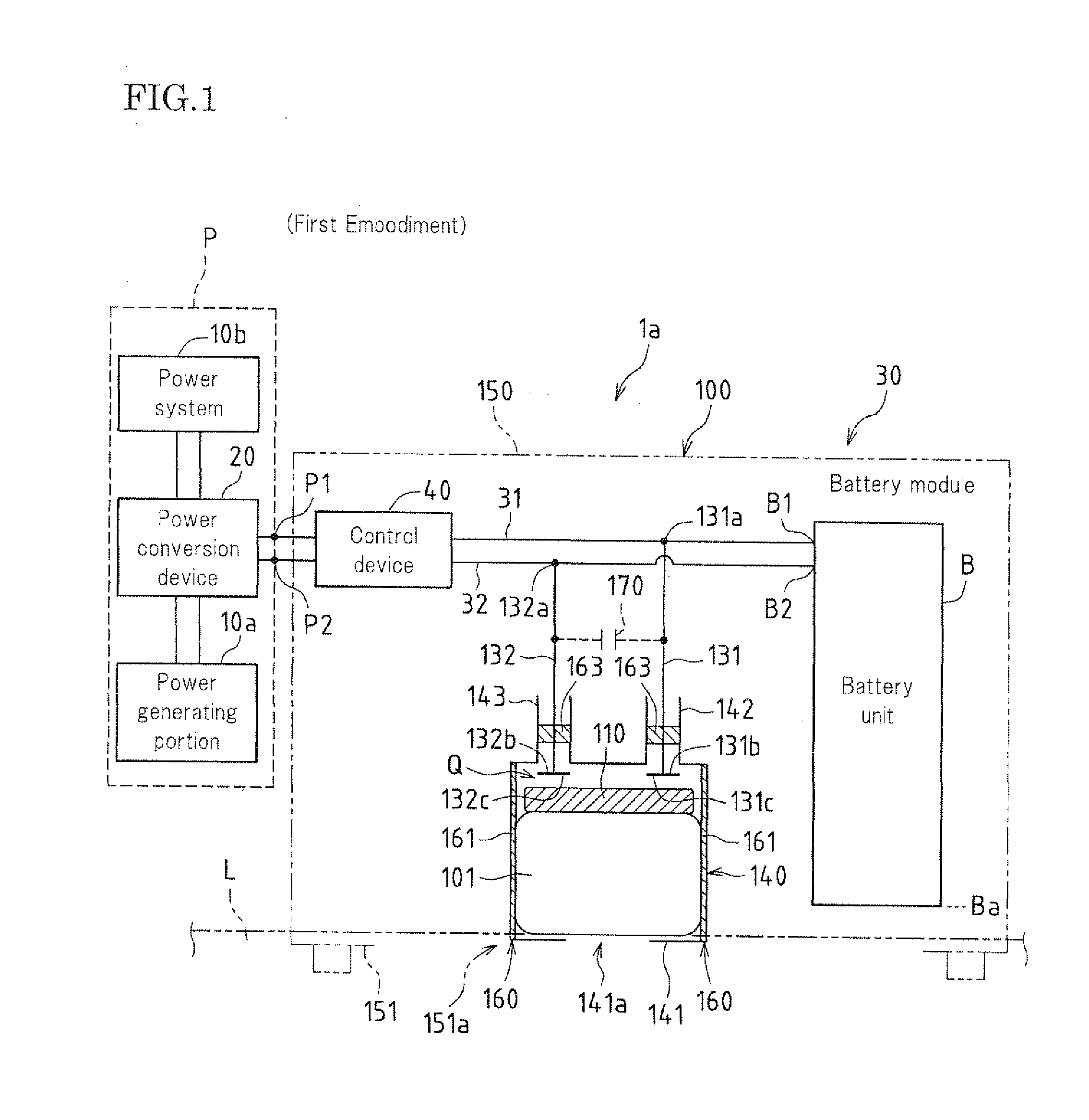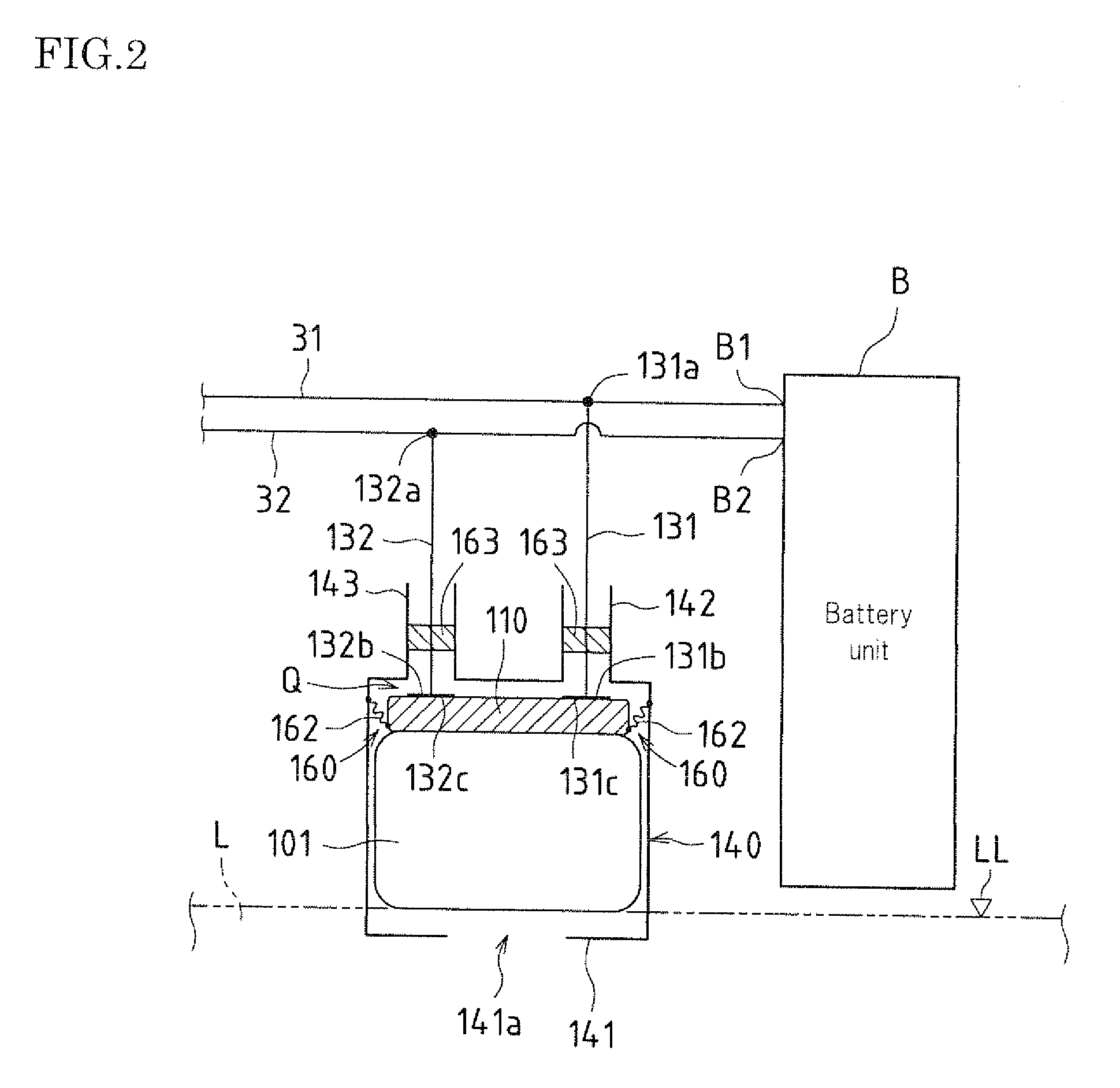Forced discharge mechanism and safety switch device for storage battery
- Summary
- Abstract
- Description
- Claims
- Application Information
AI Technical Summary
Benefits of technology
Problems solved by technology
Method used
Image
Examples
first embodiment
[0132]FIG. 1 is a diagram showing an example in which a forced discharge mechanism 100 for a storage battery B according to a first embodiment of the present invention is applied to a power generation system 1a.
[0133]The power generation system 1a shown in FIG. 1 converts direct current power from a power generating portion 10a into alternating current power in a power conversion device 20 (here, inverter), supplies the alternating current power obtained by conversion to a power system lob, and is interconnected with the power system 10b. Further, the power generation system 1a supplies direct current power from the power generating portion 10a to the storage battery B. Note that the power generating portion 10a, the power system 10b, and the power conversion device 20 operate as an external power source P.
[0134]The power generating portion 10a may be an electric power device such as a solar cell that directly converts natural energy such as sunlight into electric power or an elect...
second embodiment
[0184]FIG. 5 is a diagram showing an example in which a safety switch device 200a according to a second embodiment of the present invention is applied to a power generation system 1b.
[0185]The power generation system 1b shown in FIG. 5 is provided with the safety switch device 200a in the power generation system 1a shown in FIG. 1.
[0186]In the power generation system 1b according to the second embodiment shown in FIG. 5, the same constituent elements as in the power generation system 1a according to the first embodiment shown in FIG. 1 are given the same reference numerals, and the description thereof is omitted. The same also applies to the third to seventh embodiments shown in FIGS. 7 to 11 that will be described later.
[0187]The safety switch device 200a is provided with an interrupting device 210a capable of interrupting the connection between the external power source P and conduction portions (points where the paths branch to the discharge paths 131 and 132) 31a and 32a on the...
third embodiment
[0201]FIG. 7 is a diagram showing an example in which a safety switch device 200b according to a third embodiment of the present invention is applied to a power generation system 1c.
[0202]The power generation system 1c shown in FIG. 7 is obtained by providing the power generation system 1b shown in FIG. 5 with an interrupting device 210b, instead of the interrupting device 210a. Further, the interrupting device 210b is obtained by providing the interrupting device 210a with a current flow detection sensor 50b, instead of the water detection sensor 50a.
[0203]The current flow detection sensor 50b is connected in series to at least one of the discharge paths 131 and 132 (here, the discharge path 132), and is connected to the input system of the control device 40. Here, the current flow detection sensor 50b is a current detector.
[0204]With the safety switch device 200b according to the third embodiment, in the forced discharge mechanism 100, the float portion 101 rises up, the electri...
PUM
 Login to View More
Login to View More Abstract
Description
Claims
Application Information
 Login to View More
Login to View More - R&D
- Intellectual Property
- Life Sciences
- Materials
- Tech Scout
- Unparalleled Data Quality
- Higher Quality Content
- 60% Fewer Hallucinations
Browse by: Latest US Patents, China's latest patents, Technical Efficacy Thesaurus, Application Domain, Technology Topic, Popular Technical Reports.
© 2025 PatSnap. All rights reserved.Legal|Privacy policy|Modern Slavery Act Transparency Statement|Sitemap|About US| Contact US: help@patsnap.com



